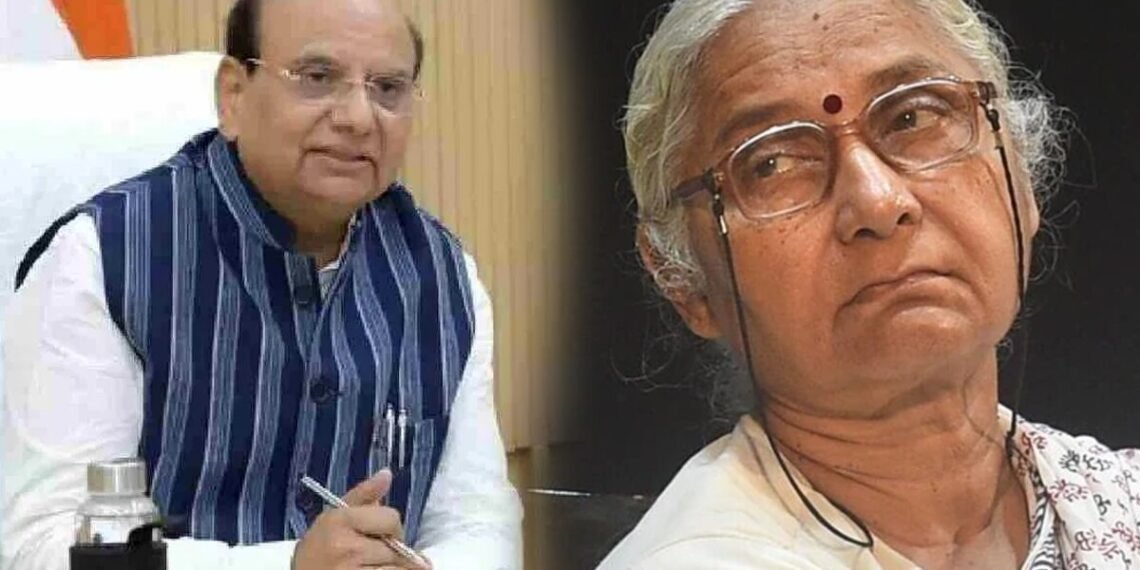The SC called the Patkar–Saxena case one of the oldest pending matters as Patkar’s plea for more witnesses was withdrawn.
BY PC Bureau
New Delhi, September 8, 2025: In a major legal boost for Delhi Lieutenant Governor V.K. Saxena, activist Medha Patkar on Monday withdrew her application in the Supreme Court challenging a Delhi High Court order in a 25-year-old defamation case.
Patkar had sought to overturn the High Court’s refusal to permit additional witnesses in the case she had filed against Saxena in the late 1990s. However, during the hearing before a bench of Justices M.M. Sundresh and Satish Chandra Sharma, her counsel chose to withdraw the plea, anticipating an adverse order.
The Supreme Court observed that with the matter dragging on for over two decades, it was “perhaps one of the oldest pending cases.” The High Court had earlier upheld a trial court’s view that Patkar’s request for more witnesses amounted to a delaying tactic, noting that none of her existing witnesses had substantiated her allegations.
READ: UKNA Forces Coffins’ Return in Churachandpur Before PM Visit
Saxena’s counsel informed the court that proceedings in the trial court would continue to their legal conclusion. With Patkar’s withdrawal, the long-running defamation case returns to the lower court stage for final adjudication.
The case dates back to 2000, when Medha Patkar, activist and founder of the Narmada Bachao Andolan, filed a criminal defamation suit against V.K. Saxena, then heading the National Council for Civil Liberties (NCCL). Saxena had publicly accused Patkar of misleading people and foreign donors about the Narmada dam project, questioning both her methods and her motives. Patkar responded by moving the court, alleging that Saxena’s remarks had damaged her reputation as a social activist.
READ: Delhi’s Air Laden with Toxic Mercury, Microplastic: Study
Over the years, the trial has moved at a glacial pace, with multiple adjournments and procedural delays. Patkar had sought to introduce fresh witnesses long after the case had begun, which both the lower court and later the Delhi High Court refused, terming it a delaying tactic. The recent Supreme Court development marks yet another turning point in a legal battle that has stretched across a quarter century.














